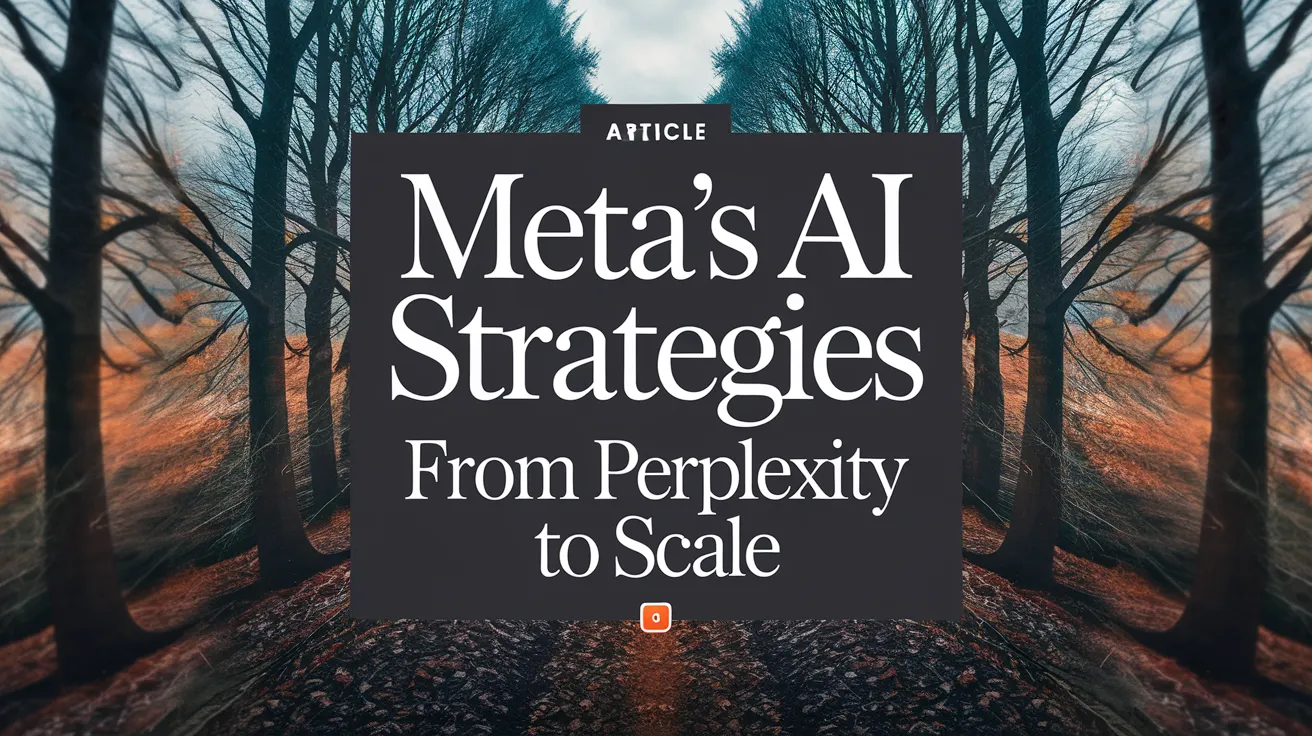Meta’s AI Strategies: From Perplexity to Scale

Meta has been making headlines recently as it pursued a takeover of artificial intelligence startup Perplexity AI prior to committing a substantial $14.3 billion investment into Scale AI, as confirmed by CNBC. This aggressive pursuit underscores Meta’s ongoing efforts to enhance its standing in the competitive AI landscape, where it currently sees rivals like OpenAI and Google’s parent company, Alphabet, as significant threats.
Although discussions between Meta and Perplexity did not culminate in a deal—reportedly mutually dissolved—sources indicate that Perplexity opted out of negotiations. Bloomberg first broke news of these discussions, but both parties remained tight-lipped afterward, with Perplexity refraining from comment and Meta not responding to inquiries.
A notable aspect of Meta’s strategy under CEO Mark Zuckerberg is the urgent need to expedite the hiring of leading AI talent, particularly as OpenAI advances in developing AI models and user-facing applications. Reports suggest rising frustration within Meta over the company’s current AI trajectory, driving Zuckerberg to explore all potential avenues to close the competitive gap.
Meta’s investment in Scale AI has resulted in the social media giant securing a 49% stake, though this investment does not confer any voting rights. As part of the arrangement, Alexandr Wang, Scale AI’s founder, and a select number of Scale employees will transition to Meta. Interestingly, Meta also attempted to purchase Safe Superintelligence earlier in 2025, which had been valued at $32 billion in its recent fundraising efforts.
Daniel Gross, the CEO of Safe Superintelligence, and former GitHub CEO Nat Friedman are set to join Meta’s AI division, contributing to projects spearheaded by Wang. Their venture capital firm, known as NFDG, will also align with Meta’s interests as part of this growing collaboration.
Furthermore, OpenAI’s CEO Sam Altman recently revealed in a podcast that Meta attempted to lure away OpenAI employees by offering exorbitant signing bonuses, reportedly reaching up to $100 million, along with impressive compensation packages. Altman noted that Meta perceives OpenAI as its primary competitor, emphasizing the fierce competition in the AI domain and acknowledging Meta’s aggressive pursuit of innovation.
This string of developments reflects Meta’s commitment to securing a foothold in the AI industry, albeit amid a backdrop of mounting tension and competition from established players in the field.